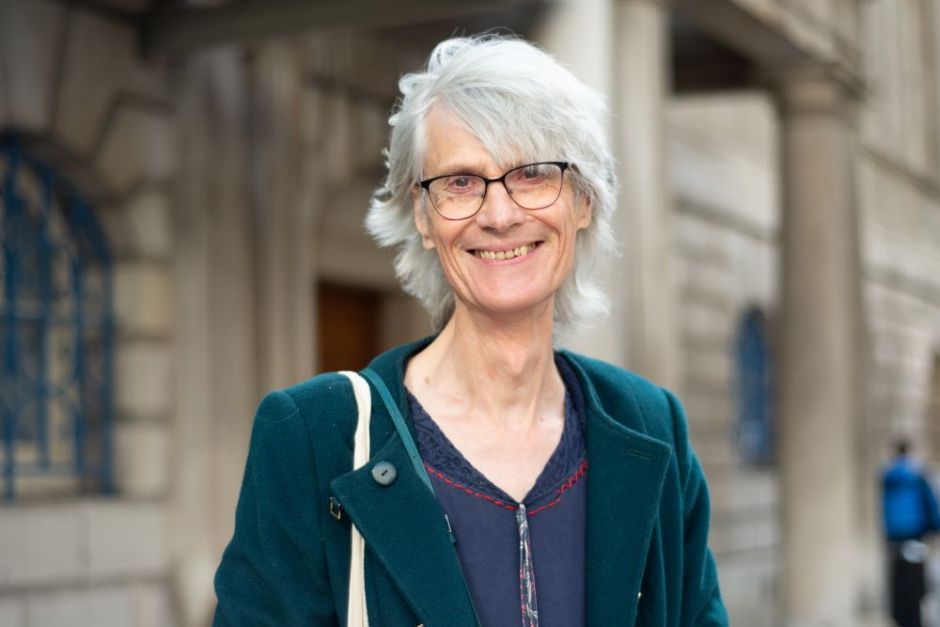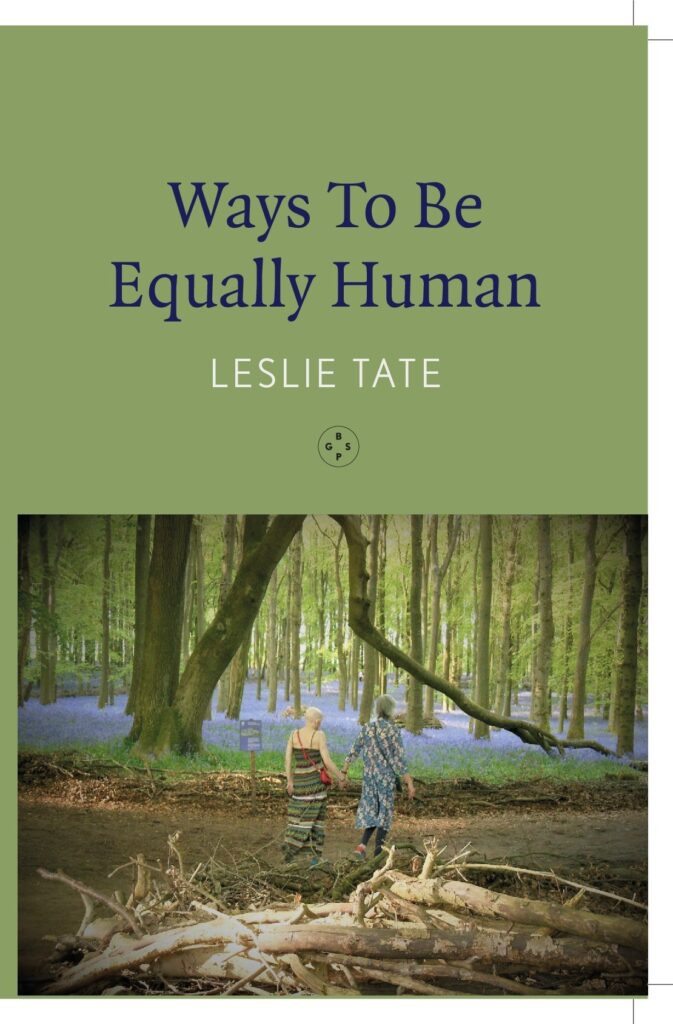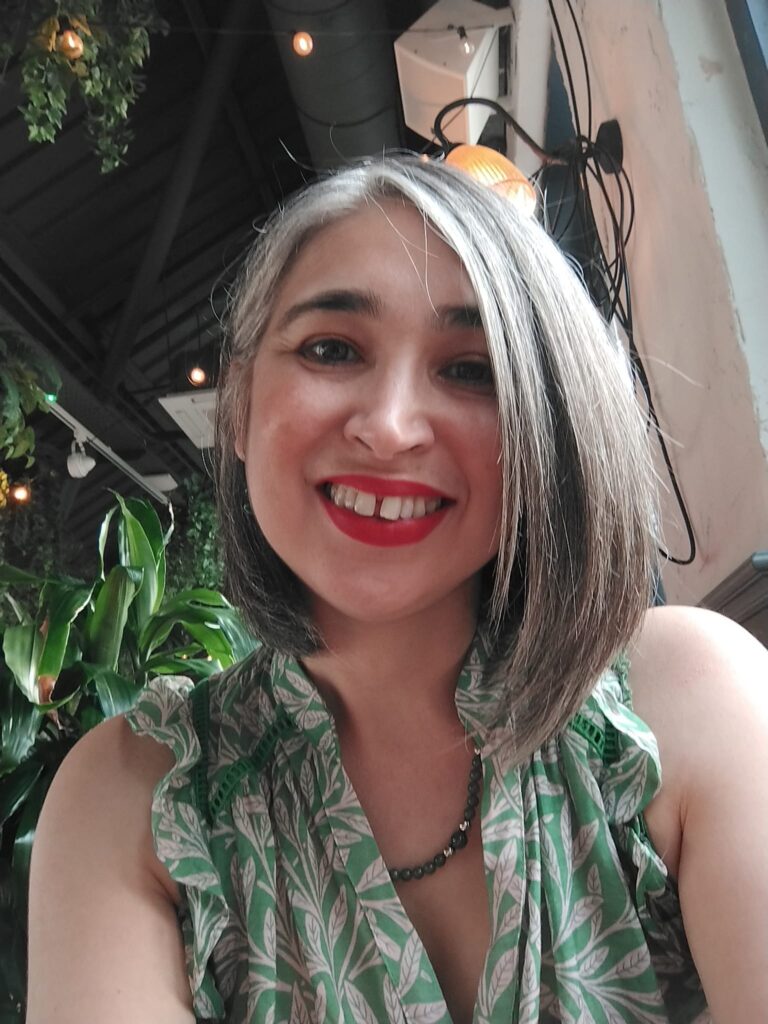
JULIA LEE BARCLAY-MORTON – YOGA, WATER AND REWRITING AUTISM
I interviewed writer Julia Lee Barclay-Morton about her experience of autism. Julia began as an experimental dramatist in New York, moving to the UK to



Poet Tracey Rhys, writer of Teaching a Bird to Sing and winner of the Poetry Archive’s video competition reviews Ways To Be Equally Human.
Tracey, whose first full collection comes out in 2025 with Parthian Books, writes:
“A love affair with poetry shines through in this intricate fourth collection from writer and broadcaster Leslie Tate. At first glance, the book is populated with lively anecdotes, consisting of poetry written with lyrical musicality and intellectual muscle, juxtaposed with probing and equally lyrical prose, which Tate calls the objets trouvés:
‘…Written by feel, they reshape the actual to serve the imaginary.’
Into this auto-fiction, Tate soars, at times through a dreamlife: it adds a surreal touch to painful recollections and enhances the reality of the rest of the book. But this ambitious study is also part-commentary on the business of writing itself. Why do we writers labour with language so compulsively, our whole lives long? Does it help or hinder our lives? And what in our private histories might have led us here?
Leslie addresses such questions in Ways to be Equally Human, and much besides, using the writer’s own life as a test ground. Gifted at writing about tough topics with an honest, pull-no-punches, self-reflective voice, Tate is a skilled communicator, both on the page and in performance, making the difficult business of telling look easy:
‘There’s a tension between what goes into a story and the truth. In life things are random and messy, in the story everything ties up.’
Part of what makes the work so strong is that Leslie recounts difficult experiences while firmly holding our gaze. Whether relating to us gender dysphoria in childhood or recounting the dangers of using motorway service station toilets as a non-binary adult, or pushing for climate justice with Extinction Rebellion, the writing is empowering, defiant and rooted firmly in the modern world.

At the end of a piece about online abuse, Leslie quotes Robert Frost: ‘Poetry is a way of taking life by the throat’ and take it Leslie does. But although autofiction makes up much of the book, the whole is far more than its parts. Tate’s personal insights into the human condition are viewed through the lens of personal experience, but Ways to Be Equally Human can also be read in the context of the philosophy and practice of creativity. During boyhood, even the act of reciting poetry is a commanding force for the child:
‘As he read them, a still, elevated glow came over him. Nobody could touch him or hurt him anymore. It was a kind of immortality.’
Quotes from greats such as Don Paterson, Derek Mahon and Emily Dickenson, amongst others, inform the text, bookending sections so that the writing preceding it becomes a thought-experiment, or the quote becomes the full stop at the base of a work. Traversing his own writing, Leslie bounces established ideas off experiences, applying their measures to life’s key moments.
For Tate, writing goes back to the earliest memories, and becomes a safe sanctuary. Leslie inhabits childhood with a deft eye, reliving the social pressures to conform with particular luminosity. The boy Tate, sensitive and in secret, seeks to find his place in a gendered society, forcing himself to perform the roles expected of a sport-loving, conventional young male within the narrow confines of a boys’ school, on his way to a more liberated adulthood and a refusal to be pigeon-holed by modern gender stereotypes. In the fictional episode Moma, I Just Killed a Man, a distant but loving mother stage-whispers tales of ‘loss and grief’ to her mirror as her son listens at the closed door. By contrast, Leslie life-writes about the mutual love shared with wife Sue Hampton, for whom he is her ‘beautiful boy’.
Tate’s empathy for human frailty is exemplified in the prose poem Tulips. The narrator uncovers the Quakers’ internal thoughts (Leslie is a self-proclaimed Eco-Quaker) while they sit in silence, each mind revealing itself as being as grounded with earthly concerns as the next. Indeed, the natural world is the preoccupation of much of the writing: there is an Extinction Rebellion sit-in, a shattered car. The diaristic account of Tate recording some ‘slow radio’ with wife Sue during lockdown is one of my favourite moments in the book.
Recorded for their radio show, Leslie recalls the bumpy beginnings of the session, juggling a phone and without script, which soon unfolds into a delicious, audible feast, brimming with the diegetic sounds of walking in rhythm with nature, unabashedly quiet and profound. This very sequence might, I think, provide the most visceral shorthand to encapsulate the book. The book’s jacket states that Ways To Be Equally Human is ‘a love hymn to Leslie’s partner and the planet.’
Expansive in scale and breadth, it is brave, direct and unafraid: a peaceful, hopeful dawn chorus amongst the white noise.” © Tracey Rhys
You can buy a signed copy of Ways To Be Equally Human here. Also available from Black Spring Press here.
Next week novelist Kathleen Jones talks about how to write a compelling story.

I interviewed writer Julia Lee Barclay-Morton about her experience of autism. Julia began as an experimental dramatist in New York, moving to the UK to

I interviewed Gillean McDougall from Glasgow, who edited the collaborative projects Honest Error (on Charles Rennie Mackintosh and his wife Margaret Macdonald) and Writing the

I interviewed French writer Delphine de Vigan, whose book, No et moi, won the prestigious Prix des libraires. Other books of hers have won a clutch

I interviewed Joanne Limburg whose poetry collection Feminismo was shortlisted for the Forward Prize for Best First Collection; another collection, Paraphernalia, was a Poetry Book Society Recommendation. Joanne

I interviewed Katherine Magnoli about The Adventures of KatGirl, her book about a wheelchair heroine, and Katherine’s journey from low self-esteem into authorial/radio success and
| Cookie | Duration | Description |
|---|---|---|
| cookielawinfo-checkbox-analytics | 11 months | This cookie is set by GDPR Cookie Consent plugin. The cookie is used to store the user consent for the cookies in the category "Analytics". |
| cookielawinfo-checkbox-functional | 11 months | The cookie is set by GDPR cookie consent to record the user consent for the cookies in the category "Functional". |
| cookielawinfo-checkbox-necessary | 11 months | This cookie is set by GDPR Cookie Consent plugin. The cookies is used to store the user consent for the cookies in the category "Necessary". |
| cookielawinfo-checkbox-others | 11 months | This cookie is set by GDPR Cookie Consent plugin. The cookie is used to store the user consent for the cookies in the category "Other. |
| cookielawinfo-checkbox-performance | 11 months | This cookie is set by GDPR Cookie Consent plugin. The cookie is used to store the user consent for the cookies in the category "Performance". |
| viewed_cookie_policy | 11 months | The cookie is set by the GDPR Cookie Consent plugin and is used to store whether or not user has consented to the use of cookies. It does not store any personal data. |
2 responses
Congratulations, Leslie. A fantastic and well-thought-out review.
Thank you, Olga! 🙂 🙂 🙂